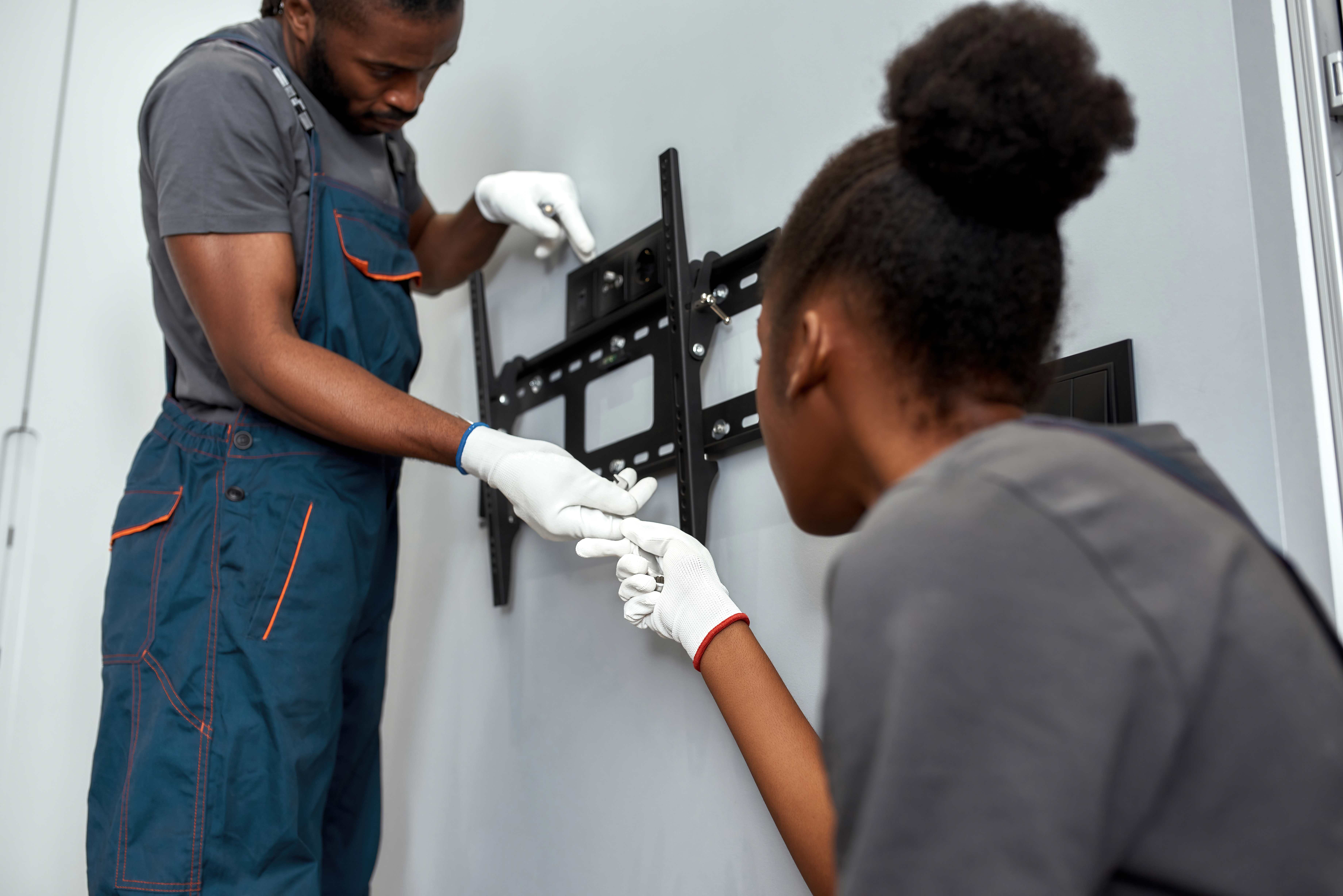
Learn who to hire to mount your TV on the wall—the best choice, what pros do, and costs—so you can compare quotes and book confidently.
The cost to get internet installed averages $690


How much it costs to get internet installed averages $250 to $1,125 depending on coverage needs, equipment selection, and installation complexity.
For a mid-sized home and standard setup, homeowners pay an average of $690.
Basic router setups may cost as little as $160, while custom systems in large homes may reach up to $2,220.
Choosing the right internet setup can provide even wi-fi coverage and ready your home for smart home equipment and other modern technology.
This article was created using automation technology and thoroughly fact-checked and edited by HomeAdvisor Editor Ryan Noonan.
Setting up Wi-Fi in your home costs between $250 and $1,125 on average. Homeowners pay an average of $690, but costs can vary widely depending on your property's layout, the equipment you select, and whether you choose professional installation or self-setup. Smaller spaces like apartments cost as little as $160, while custom installations in large homes with complex requirements can reach $2,220.
Larger properties require more powerful equipment or multiple access points to ensure consistent coverage throughout. Multi-level homes need strategically placed hardware to overcome signal barriers, potentially requiring permits costing $20 to $100 if new wiring becomes necessary.
| Home Size | Equipment | Cost |
|---|---|---|
| Apartment/condo | Single router | $100–$500 |
| Small home | Router and range extender | $150–$700 |
| Medium home | Mesh system (2–3 nodes) | $200–$800 |
| Large/multi-story home | Mesh system (3+ nodes) or wired access points | $500–$1,000+ |
Internet configurations can include different kinds of equipment or hardware, depending on what you're using it for, and they may need additional or specialized labor.
Professional wi-fi installation contractors charge $50 to $100 hourly, with residential setups requiring one to three hours to complete. Some providers waive activation fees during promotional periods or for customers signing longer-term agreements.
Standard routers fall within the $100 to $500 cost range, with basic models at the lower end. Mesh systems, although they cost $300 to $1,200, provide superior coverage for larger spaces and eliminate dead zones that plague traditional single-router setups.
Understanding the difference between standalone routers and combination units helps determine which best suits your needs. New router replacement costs range from $100 to $500 depending on features and capabilities, with router and modem combos costing more.
When a single router cannot adequately cover your entire living space, additional hardware becomes necessary. These supplemental devices fall within the same equipment range as primary routers but serve specific coverage expansion purposes.
Quality network cabling ensures reliable connections between your equipment and devices requiring hardwired connections. While specific cable pricing isn't detailed in standard installation cost data, quality cables are an important consideration within your overall equipment budget.
While not specifically included in standard Wi-Fi installation cost breakdowns, protecting your networking equipment from power fluctuations with whole-home surge protection is a prudent investment to prevent potential damage and subsequent replacement costs.
Beyond initial installation, budget for monthly internet service charges, potential equipment rental fees if you don't purchase your own hardware, and occasional maintenance. Professional support or annual maintenance plans range from $50 to $150 per year. Simple hardware repairs cost $50 to $150, while replacement equipment runs $100 to $400 when needed.
Consider your familiarity with networking concepts, security protocols, and troubleshooting techniques when deciding between professional and self-installation. Those with limited technical knowledge benefit most from professional setup that ensures optimal performance and security.
Self-installation requires appropriate hardware, configuration tools, and diagnostic capabilities. While internet providers sometimes include basic equipment, purchasing your own within the $75 to $500 range provides better performance and eliminates monthly rental fees.
Properties with challenging layouts, older construction, or specific wiring requirements benefit from professional installation from a local computer repair contractor or internet network technician. Homes requiring structural modifications or extensive cable routing should budget for permits and specialized labor that may push costs toward the higher end of the range.
Use these strategies to keep your internet install costs budget-friendly:
Compare provider promotions: Request estimates from three different Wi-Fi installation professionals to identify the most competitive pricing and service offerings in your area.
Negotiate fees: Many providers have flexibility with setup and activation charges, especially for new customers or during competitive promotional periods.
Buy your own modem or router: Purchasing networking equipment eliminates monthly rental fees, potentially saving hundreds of dollars over the equipment's lifespan compared to provider-supplied hardware.
Choose equipment tailored to your needs: Select routers or mesh systems specifically designed for your home's size and internet usage patterns rather than overspending on features you won't utilize.
Bundle your services: Many internet service providers offer installation discounts when you combine internet installation with television or phone services.
No place is more important than your home, which is why HomeAdvisor connects homeowners with local pros to transform their houses into homes they love. To help homeowners prepare for their next project, HomeAdvisor provides readers with accurate cost data and follows strict editorial guidelines. After a project is complete, we survey real customers about the costs to develop the pricing data you see, so you can make the best decisions for you and your home. We pair this data with research from reputable sources, including the U.S. Bureau of Labor Statistics, academic journals, market studies, and interviews with industry experts—all to ensure our prices reflect real-world projects.
From average costs to expert advice, get all the answers you need to get your job done.

Learn who to hire to mount your TV on the wall—the best choice, what pros do, and costs—so you can compare quotes and book confidently.

The cost to install a projector and screen ranges, depending on equipment, labor rates, mounting complexity, room layout, and add-ons.

HomeAdvisor's Computer Repair Cost Guide gives average prices to fix a desktop or laptop. Explore prices lists for common replacements like hard drives, keyboards, batteries, motherboards & more. Compare Windows vs. Mac repair costs.

Follow this guide to suss out how much youll pay for a repair technician to come service your computer network, including your router, modem, or wiring.

Use this guide to budget for TV antenna installation costs. Break down cost factors like rooftop versus pole or mast installation and indoor or outdoor setups.